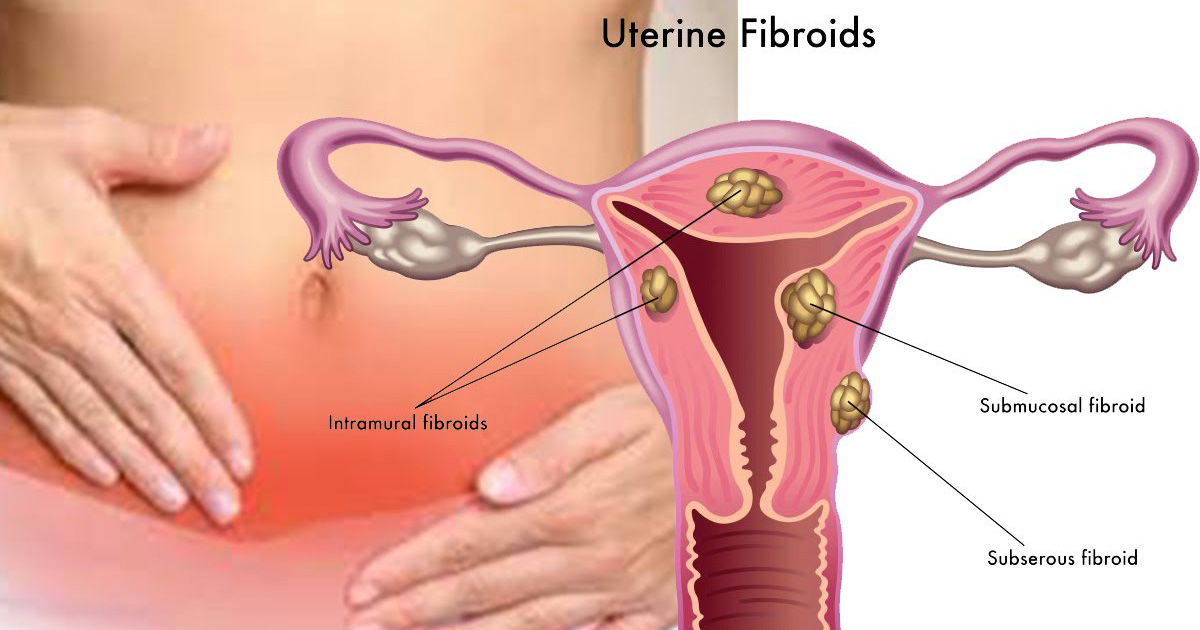Uterine fibroids refer to noncancerous growths in the area of the uterus that appear at the time of childbearing. It is also called leiomyomas or myomas. Uterine fibroids are linked with having an increased risk of cancers of the uterine.
Mostly, uterine fibroids do not cause cancer. The size of fibroids ranges from seedings, unable to be detected by the human eye to the masses that are bulky. These masses enlarge the size of the uterus or distort it. You may have a single fibroid or more in number.
Multiple fibroids expand the uterus size in most cases. The size of the uterus becomes so enlarged that it reaches the area of the rib cage. Many women have one or more uterine fibroids during their lives. You may not know if you are having uterine fibroids.
The reason is that this condition does not show specific symptoms. The doctor may identify uterine fibroids during a prenatal ultrasound or pelvic exam.
Symptoms Of Uterine Fibroids
Many women who develop fibroids do not have symptoms. Symptoms are also associated with the size, location and number of fibroids. Common signs and symptoms of having fibroids are:
- Heavy menstrual bleeding
- Pelvic pain or pressure
- Menstruation lasts more than one week
- Frequent urination
- Constipation
- Problem emptying your bladder
- Leg pains
- Backache
A fibroid induced acute pain rarely when it begins to die and outgrows its supply of blood. Doctors classify fibroids by their location. Intramural fibroids grow within the muscular uterine wall.
Submucosal fibroids bulge into the cavity of the uterine. These fibroids project to the outer area of the uterus.
When You Should Visit A Doctor
Visit your doctor if you are having continuous pelvic pain and prolonged and heavy periods. You may also see spotting between the periods. In this condition, you should also see a doctor. If you are facing problems emptying your bladder then go to the doctor.
In case of anemia, seek medical treatment from your doctor. If you are suffering from sharp pelvic pain or severe vaginal bleeding that occurs suddenly then you must see a doctor.
Causes Of Uterine Fibroids
Doctors don’t know the exact cause of fibroids. Research focuses on the following factors in causing uterine fibroids.
Genetic Changes
Many fibroids have some genes that are different from the uterine muscle cells that are normal. Genetic changes can cause uterine fibroids in women in some cases.
Hormones
Progesterone and estrogen are two hormones that work for the stimulation of the development of the lining during your menstrual cycle for the purpose of pregnancy preparation. It may enhance the growth of the fibroid in women.
Fibroids have more receptors of progesterone and estrogen as compared to other muscle cells. These fibroids start shrinking after the phase of menopause due to a reduction in hormonal production.
Growth Factors
Substances that help your body to maintain the tissues for example insulin growth factors may also affect the growth of fibroids.
Extracellular Matrix
It is the material that makes cells stick with each other just like mortar between the bricks. The level of the extracellular matrix is high in the fibroids that make them fibrous. ECM stores some growth factors. It also causes biological changes in the cells.
Doctors revealed that a stem cell is present in the smooth muscular tissue in the area of the uterus. Fibroids develop in this stem cell. A single cell repeatedly divides and creates a rubbery mass. Uterine fibroid growth patterns may vary.
They may grow rapidly or slowly. The size of fibroids may grow or remain the same. The fibroids that doctors identify during the pregnancy may disappear or shrink later, after the pregnancy. Then, the uterus size goes back to its normal position.
Risk Factors
There are some risk factors that you might have to develop uterine fibroids. Factors that impact the development of a fibroid are:
Heredity
You have an increased risk of developing fibroids if your sister or mother has this issue.
Other Factors
The onset of menstrual periods at an early age, deficiency of vitamin D, and taking a diet higher in red meat are some other risk factors to develop uterine fibroids. Do not take alcohol in excessive amounts because it also enhances the risk to develop uterine fibroids.
